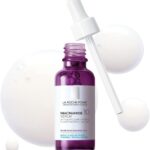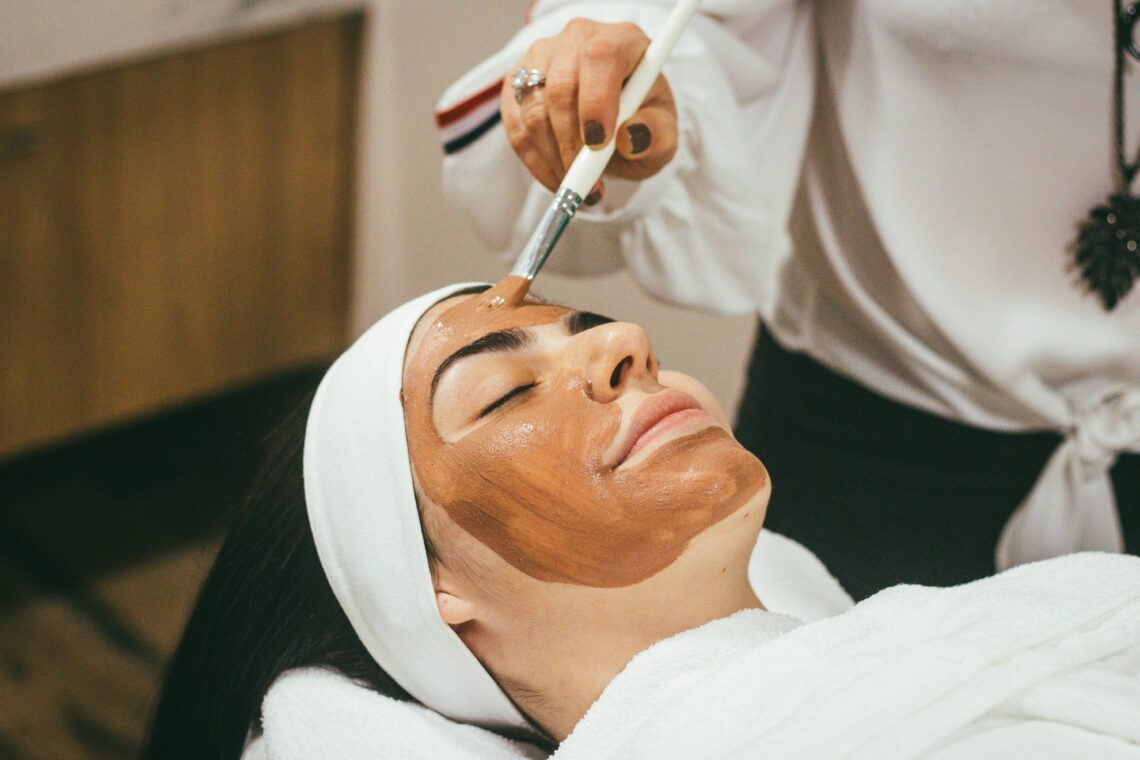Picture this: it’s a hot, sunny summer day and you’re ready to hit the beach or the park. You’re excited to soak in the sun, but then your skin rudely reminds you that it can be a sensitive, oily mess. What’s a sun-worshipper to do? Dare not choosing a sunscreen for your oily skin?
Fear not, my greasy friends! We’ve got you covered (literally) with a dermatologist-recommend guide to finding the perfect SPF for your oily and sensitive skin. Time to dive into the world of sun protection, where chemical and physical SPFs are locked in an eternal, epic battle and you get to decide who wins the throne on your face!
Chemical vs. Physical Sunscreen: A Tale of Two Sunscreens
There are two types of sunscreen, and they are very different. Meet chemical and physical SPF, the two heroes of our story.🕶
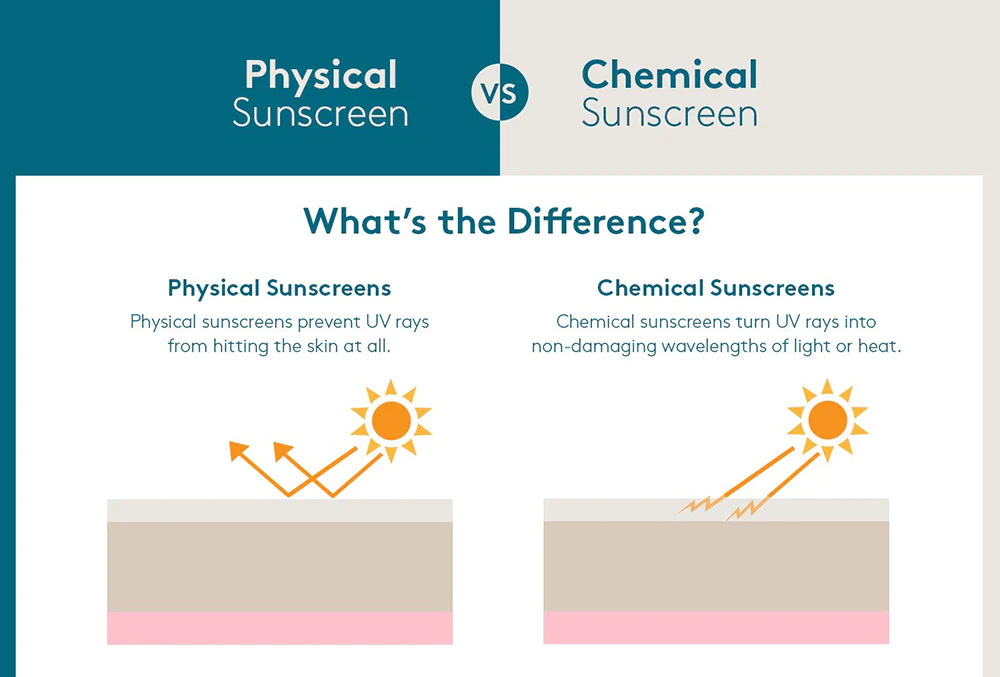
Latest Posts:
- What is Niacinamide and Its Benefits, the new TikTok Holy Grail.
- Retinol vs Retinal: Which Moisturiser is Worth Buying?
- Affordable Derm-Recommended Skincare for Dry and Sensitive Skin
Chemical Suncreen: The UV Absorber
Chemical SPF is the social butterfly of the sunscreen world. Chemical sunscreens contain organic (carbon-based) compounds that work by absorbing ultraviolet (UV) radiation and converting it into heat, which is then released from the skin. The active ingredients in chemical sunscreens include oxybenzone, avobenzone, octisalate, and octocrylene, among others.
Pros
- Thin, lightweight texture: Chemical sunscreens tend to have a more fluid consistency, making them easy to apply and blend into the skin.
- No white cast: Unlike physical sunscreens, chemical sunscreens don’t leave a white residue on the skin, which can be especially beneficial for people with darker skin tones.
- Broad-spectrum protection: Many chemical sunscreens offer broad-spectrum coverage, meaning they protect against both UVA and UVB rays.
Cons
- Potential skin irritation: Some people may experience skin irritation or allergies from the active ingredients in chemical sunscreens, especially those with sensitive skin.
- Longer wait time for protection: Chemical sunscreens need to be applied 15-30 minutes before sun exposure to allow the ingredients to properly bind with the skin.
- Decreased effectiveness over time: Chemical sunscreens can break down and lose effectiveness when exposed to sunlight, so reapplication is crucial.
Physical Sunscreen: The UV Reflector
Physical SPF, on the other hand, is like a stoic knight in shining armor. It contains inorganic compounds like zinc oxide and titanium dioxide that sit on top of your skin, forming a shield that reflects and scatters UV rays.
Pros
- Gentle on sensitive skin: Physical sunscreens are less likely to cause irritation or allergic reactions, making them a good choice for individuals with sensitive skin or conditions like rosacea.
- Immediate protection: Unlike chemical sunscreens, physical sunscreens provide protection as soon as they’re applied, with no need to wait before heading out into the sun.
- Long-lasting: Physical sunscreens are less likely to break down in sunlight, so they maintain their effectiveness longer than chemical sunscreens.
Cons
- Thicker texture: Physical sunscreens tend to have a thicker consistency, which can feel heavy or greasy on the skin.
- White cast: The minerals in physical sunscreens can leave a white residue on the skin, particularly if not rubbed in thoroughly.
- Rubs off more easily: Physical sunscreens can be more prone to rubbing off with sweat or water, so frequent reapplication is necessary.
The Perfect Sunscreen for Oily and Sensitive Skin: A Match Made in Heaven
Oily skin and sensitive skin can be a tricky combination to protect from the sun, but fear not! Here’s how to find the perfect SPF for your summer adventures.
Ingredients
For oily skin, look for sunscreens labeled “oil-free” or “non-comedogenic.” These are less likely to clog pores and cause breakouts. Also, avoid sunscreens containing alcohol, which can be drying and irritating.
Sensitive skin warriors should steer clear of chemical sunscreens, as they can sometimes lead to skin irritation. Instead, opt for physical sunscreens containing zinc oxide and/or titanium dioxide, which are gentler on the skin.
Texture
Say goodbye to heavy, greasy sunscreens that leave you feeling like a glazed donut! For oily and sensitive skin, look for sunscreens with a lightweight, matte finish. Gel, liquid, and powder sunscreens are great options.
Preventing Allergies and Pore Clogs
To avoid irritation, test new sunscreens on a small patch of skin before applying it all over your face. Make sure to patch test for at least 48 hours to see if any reactions occur. Additionally, don’t forget to cleanse your skin thoroughly at the end of the day. Sunscreens, especially water-resistant ones, can be stubborn and may require a double cleanse or makeup remover to fully remove. This will help prevent clogged pores and breakouts.
Related Post: How to choose the right sunscreen for dry and sensitve skin?
So, What Suncreen Should I Pick for my oily skin in Summer?
Now that you’re armed with knowledge, it’s time to unveil a few dermatologist-recommended sunscreens for your precious skin!
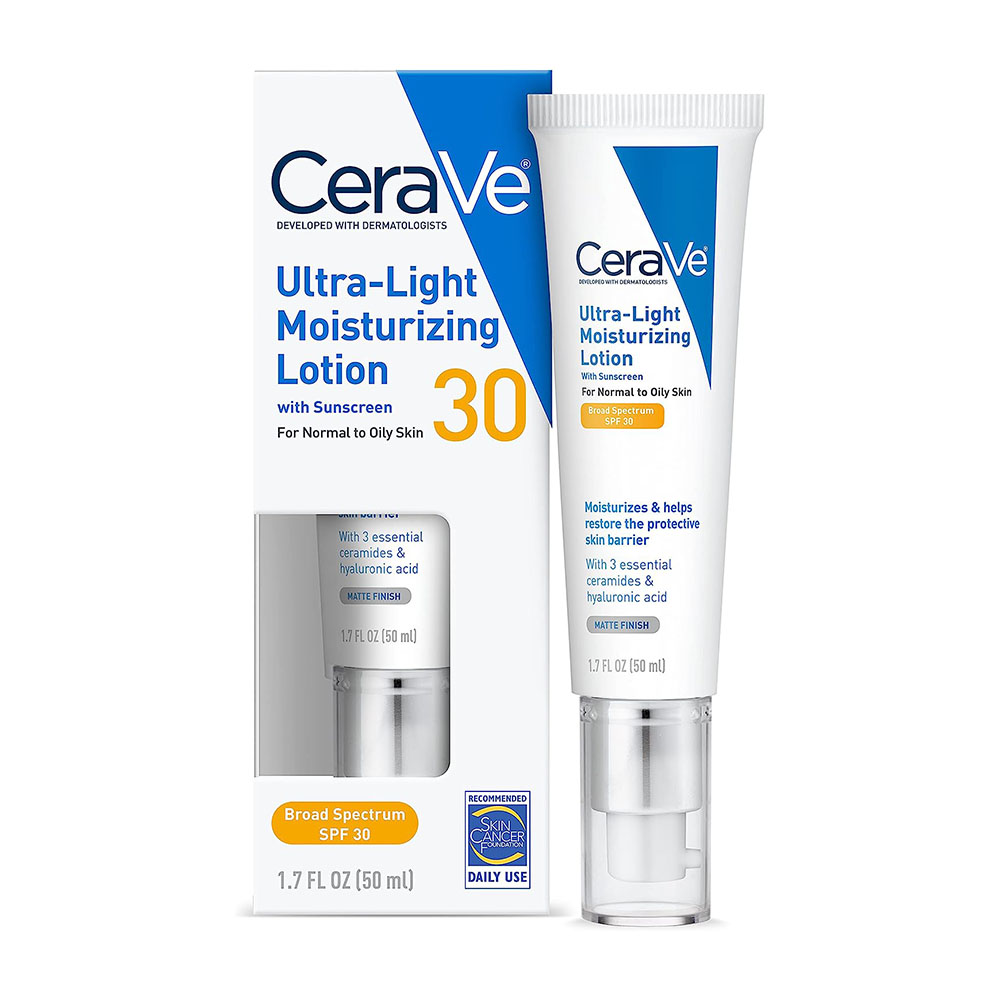
CeraVe Ultra-Light Moisturising Lotion SPF 30
This lightweight, matte-finish sunscreen is a great option for everyday use. It’s oil-free, non-comedogenic, and contains ceramides, which help to support your skin’s natural barrier.
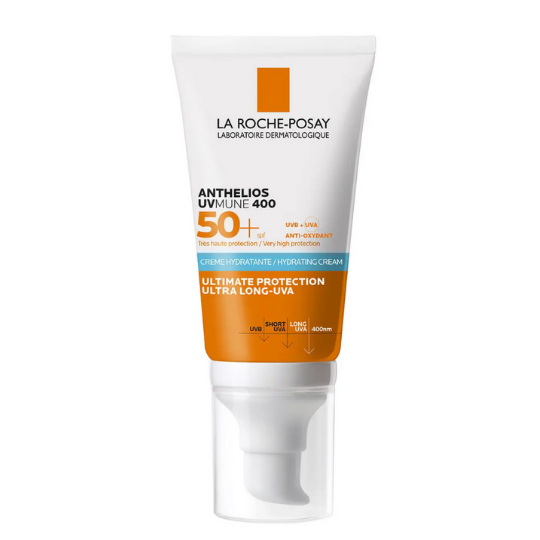
La Roche-Posay Anthelios Mineral SPF 50
This 100% mineral sunscreen is perfect for sensitive skin. It’s fragrance-free, oil-free, and has a lightweight, matte texture.
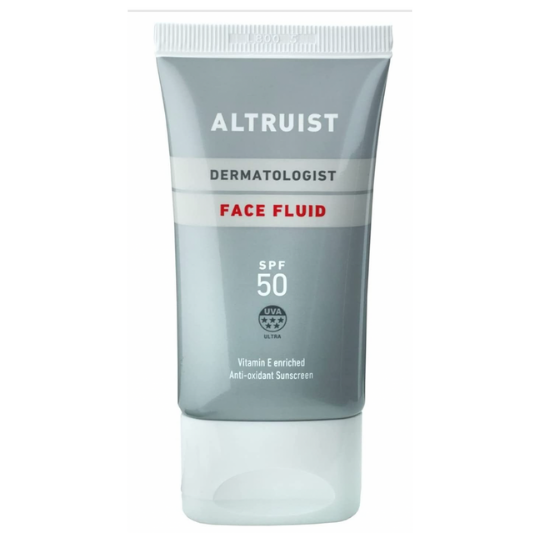
ALTRUIST Dermatologist Sunscreen SPF 50
Offering broad-spectrum protection against UVA and UVB rays. With its non-greasy formula and water resistance, it’s an excellent choice for those seeking effective sun protection for sensitive skin.
So there you have it, my sun-loving friends! I hope you can confidently embrace the summer sun while keeping your oily and sensitive skin happy and protected.
Now, go forth and bask in the glow of healthy, radiant skin!


